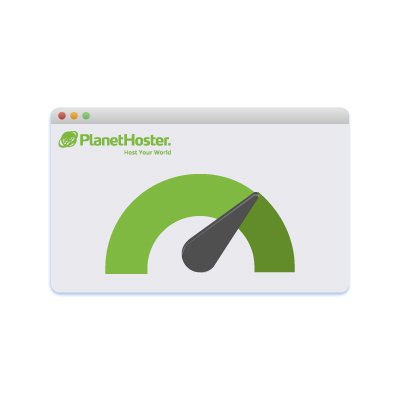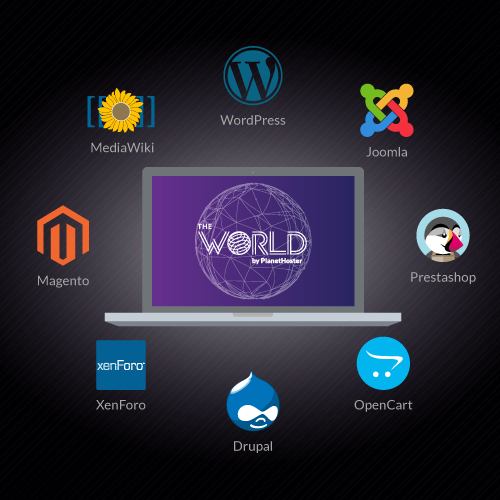The speed of your website must be optimized. This is a point on which you cannot compromise. We will explain why it should not be neglected!
Why is the loading speed of a website important?

Good loading speed is important. But why? Why?
This is the first impression your visitors make
First impressions” are very important on the web. When a person lands on a website for the first time, it only takes a few seconds to make a first opinion. In the mind of a visitor, a site that does not do very seriously sends a very bad signal about the seriousness of your activity.
The loading speed plays a role in the first impressions. If the new visitor has to wait 5 seconds for the page to load fully…you’re in trouble! Conversely, if your website loads almost instantly, you create an excellent impression. Sites that load quickly are considered more reliable and professional than others. Speed is naturally associated with efficiency and confidence.
Fast loading speeds
When it comes to loading speed, Internet users’ expectations are high, the bar has become very high. In the era of 5G, we are less and less tolerant and patient when a page does not open within 2 or 3 seconds. Our level of demands has increased over time. Today, a site whose pages load in more than 3 seconds is a site perceived as slow.
The user experience
The user experience is a general feeling or general judgment that your visitors make about your website. Today, UX is one of the most powerful elements of differentiation. There are many factors that contribute qualifying the user experience: the quality of your site’s design, the fluidity of navigation, the reinsurance, the richness of your product sheets if you have an eCommerce site…
But, more generally, your user experience is good if visitors to your website can easily and quickly find what they are looking for. Having a good loading speed is therefore essential for the user experience.
The long-term impacts of the slowness of a website
Having a slow site has an immediate impact on your website: a loss of visitors. But there is also a long-term effect. Having a slow site gradually slows down your natural growth and reduces word of mouth. Your customers, in the long run, will eventually stop recommending your website because of the disastrous experience your website offers. In the long term, this can have a significant impact on your brand image.
Measure the loading speed of your site

Use a cache plugin
Installing a cache plugin is the fastest technique to optimize the loading speed of your site. In other words, a cache plugin reduces the volume of resources used by servers by reducing the number of requests. The principle consists in saving the requests already sent to avoid relaunching them each time they are loaded again.
At PlanetHoster, with The World VIP offer, you get the free LSCache plugin for WordPress, Magento, Joomla, PrestaShop, OpenCart, Drupal and the other CMS available at Planetoster. A tool that will allow your website to go as fast as lightning!
Compress your images
Images are large files. They tend to consume a lot of server resources. This is why it is important to optimize their weight. Especially since it’s quite simple to do. There are essentially 3 techniques to reduce the weight of an image:
Compress it, using a tool like TinyPNG. This tool is 100% free and allows you to reduce the weight of your PNG or JPEG images in a few seconds. We use it, we recommend it!
Change its format, for example by converting your PNG images to JPEG images. And by limiting the use of the GIF as much as possible.
Reduce the dimensions. The smaller an image is, the fewer pixels it has, the less heavy it weighs. Makes sense.
Cleaning up your database
Without work now, a website’s database can quickly become polluted by a set of unnecessary elements: draft articles, revisions of saved pages, plugins/applications installed but not used. There are several tools available to clean up your database.
Compresser votre site web avec Gzip
Gzip est une méthode simple pour compresser les fichiers d’un site web et ainsi économiser de la bande passante. Tous vos fichiers sont compressés dans un fichier zip. Ensuite, lorsqu’un visiteur charge l’une de vos pages, son navigateur web dézippe le fichier. C’est simpel comme bonjour, et c’est efficace !
Reduce the number of redirections
301 (permanent) redirections are always preferable to 404 redirections, but still, contribute to slowing down the site. Once again, Screaming Frog is proving to be a very good tool. It is used to identify 303 redirections. If you are on a PC, you can use Xenu Link Sleuth.
If you implement these techniques, you will quickly notice an improvement in the loading speed of your website.

It would have been better, if links for recommended tools have been provided, like for example TinyURL, Screaming Frog SEO Spider, so people can land at actual destinations,